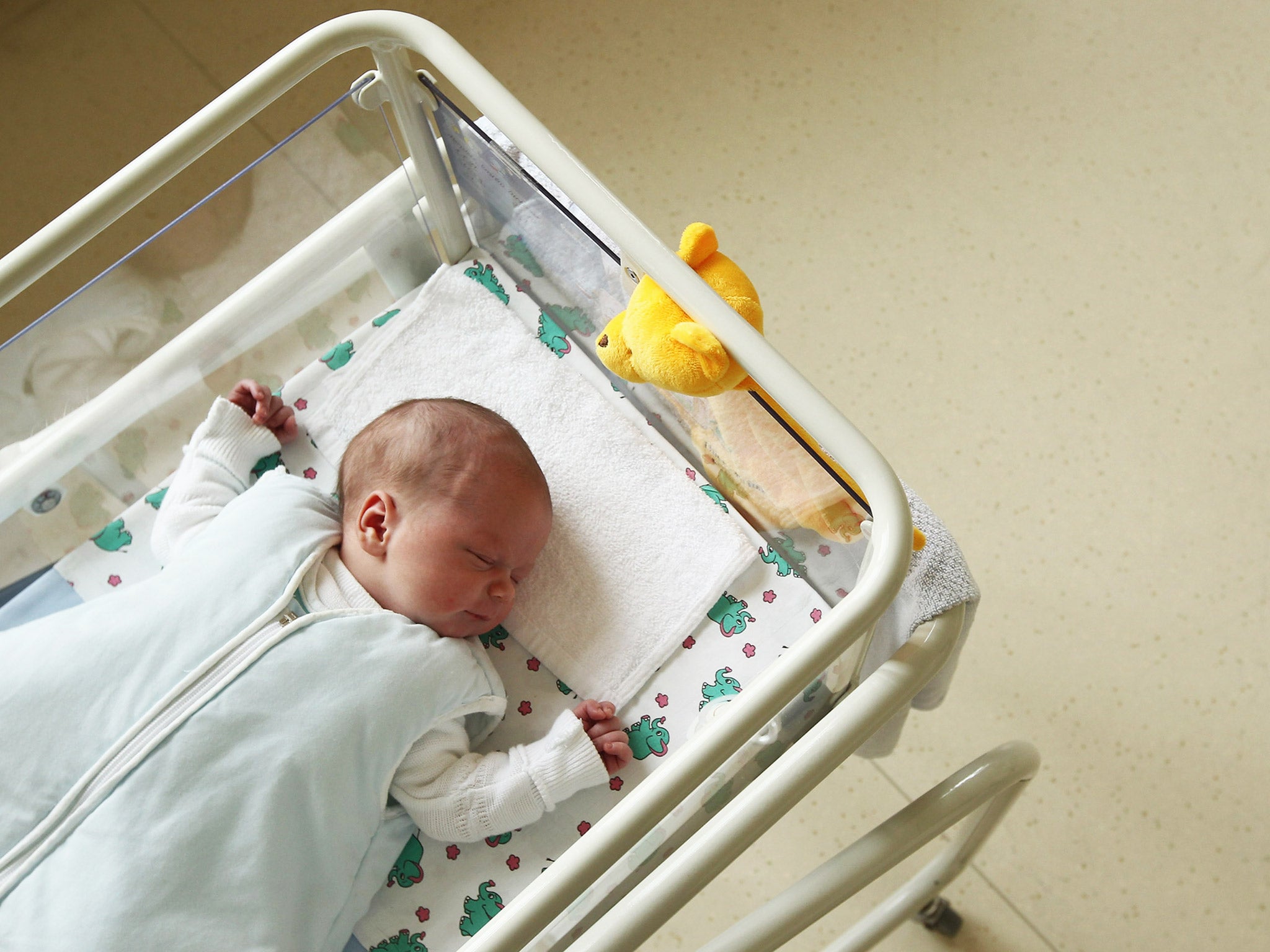Government cuts causing fewer babies to be born, say Office for National Statistics
The ONS said that cuts 'may have influenced decisions around childbearing'

Your support helps us to tell the story
From reproductive rights to climate change to Big Tech, The Independent is on the ground when the story is developing. Whether it's investigating the financials of Elon Musk's pro-Trump PAC or producing our latest documentary, 'The A Word', which shines a light on the American women fighting for reproductive rights, we know how important it is to parse out the facts from the messaging.
At such a critical moment in US history, we need reporters on the ground. Your donation allows us to keep sending journalists to speak to both sides of the story.
The Independent is trusted by Americans across the entire political spectrum. And unlike many other quality news outlets, we choose not to lock Americans out of our reporting and analysis with paywalls. We believe quality journalism should be available to everyone, paid for by those who can afford it.
Your support makes all the difference.Fewer babies are being born as a result of the Government’s austerity drive putting women off from having children, suggests a new report by the Office for National Statistics (ONS).
There were 695,233 live births in England and Wales in 2014 – a drop of several thousand on the previous year. “The fall in live births in 2014 suggests a continuing downward trend,” says the report, which was released on 15 July.
And the fertility rate also decreased last year, falling to an average of 1.83 children per woman from 1.83 in 2013.
Discussing the reasons for the decline, it states: “Reforms by the coalition Government to simplify the welfare system, which have resulted in some significant changes to benefits, may have influenced decisions around childbearing.”
A number of welfare reforms which were announced by the Government in 2011 and 2012 are cited. These include cuts to housing benefits, the removal of child benefit where one parent earns over £50,000; and the cap on benefits that working age people can receive.
And uncertainty about employment, as well as “lower career and promotion opportunities” in the form of temporary, part-time, or zero-hours contracts, can “significantly reduce women's desire for children,” adds the report.
The average age of mothers increased by more than two months to 30.2 years in 2014 - the highest since records began.
“In most developed countries women have been increasingly delaying childbearing to later in life, which has resulted in increases in the mean age at first birth,” it states.
Although the continuing rise in older mothers may be down to factors such as increased involvement in higher education or work, it could also be a reflection of “the rising costs of childbearing, labour market uncertainty, housing factors and instability of partnerships,” according to the report.
“Older women may feel less inclined to delay having children than younger women, while at any age childbearing choices may be affected by parents’ current financial or housing position,” it says.
The report also reveals that the number of teenagers giving birth is at its lowest since 1946, with 25,977 women under 20 having babies last year – down from more than 29,000 in 2013.
Responding to the ONS figures, Vivien Waterfield, deputy chief executive at Home-Start, a charity which supports families, said: “Decisions on whether to have more (or any) children can often depend on how secure parents feel and the pressures they are under. Changes in circumstances make families feel very vulnerable: unreliable employment, gaps in benefit payments, poor physical and mental health and problems with housing can all push them into crisis situations.”
A spokesperson for the Department of Work and Pensions declined to comment on the link between benefit cuts and the falling fertility rate.
Join our commenting forum
Join thought-provoking conversations, follow other Independent readers and see their replies
Comments